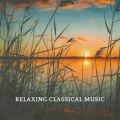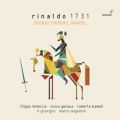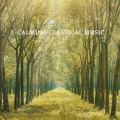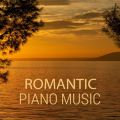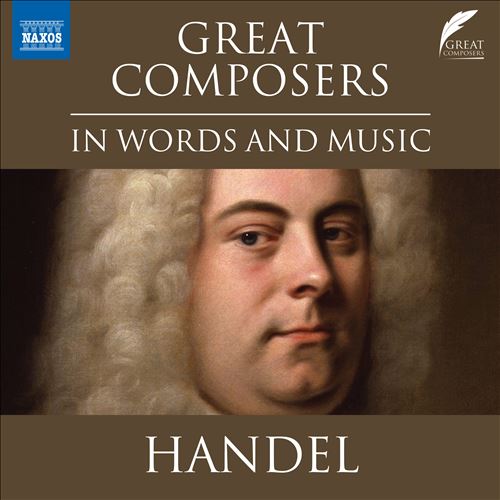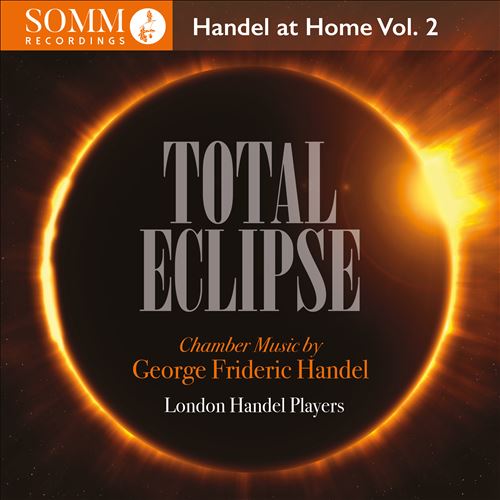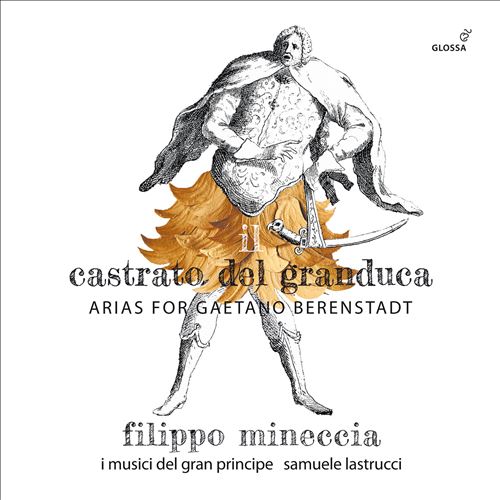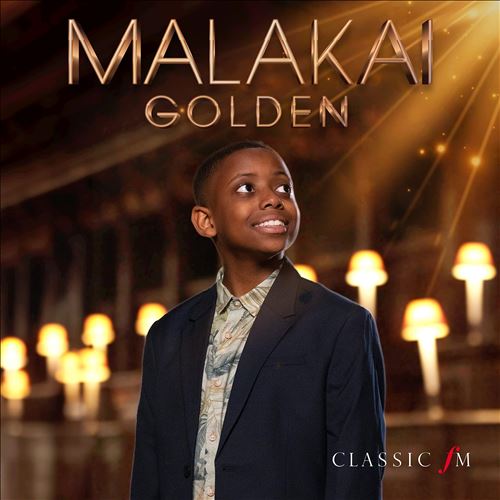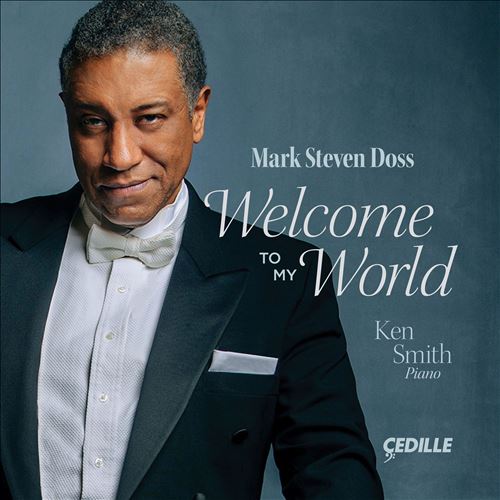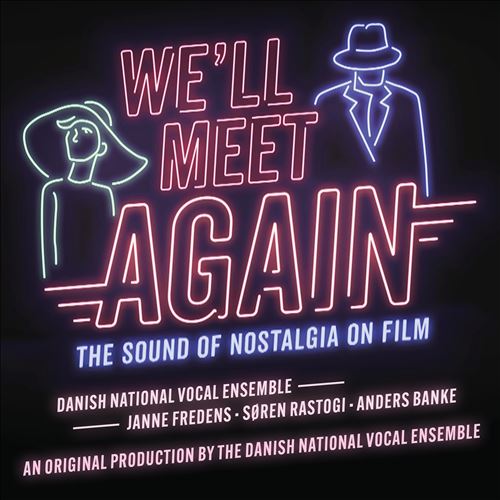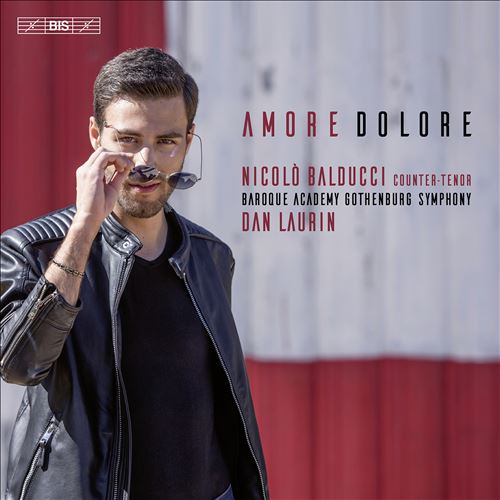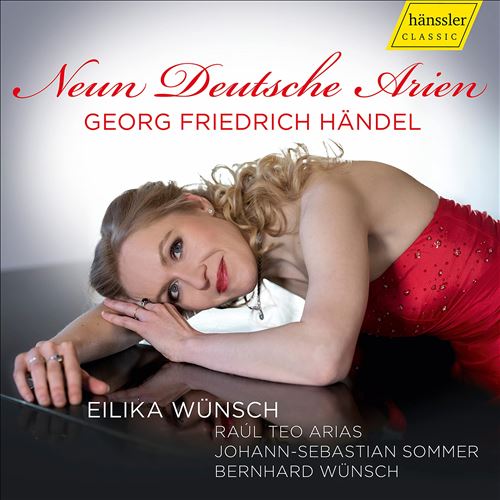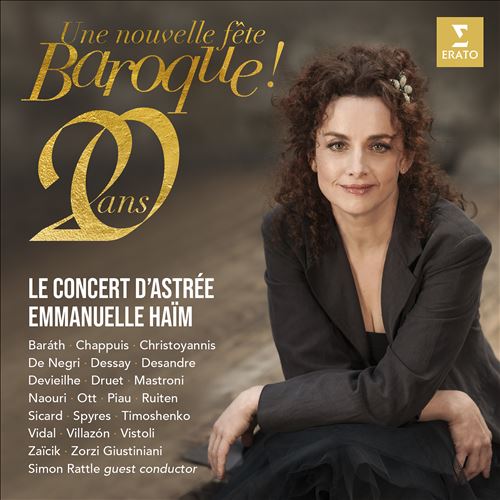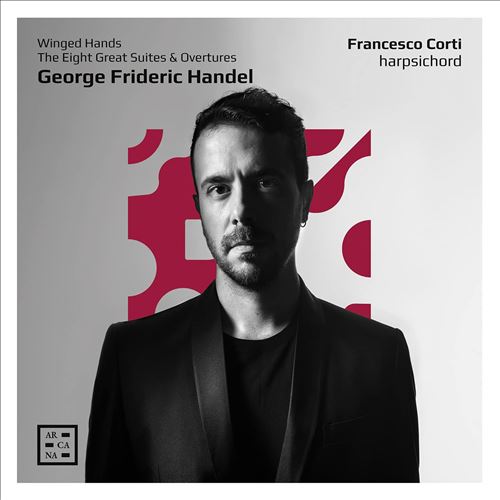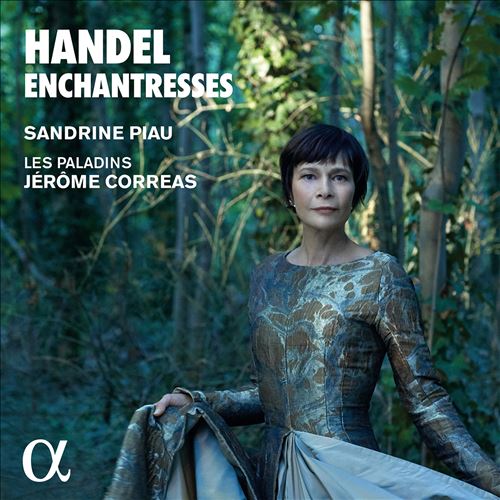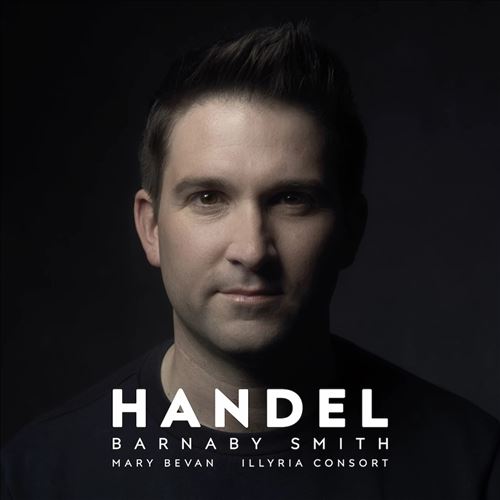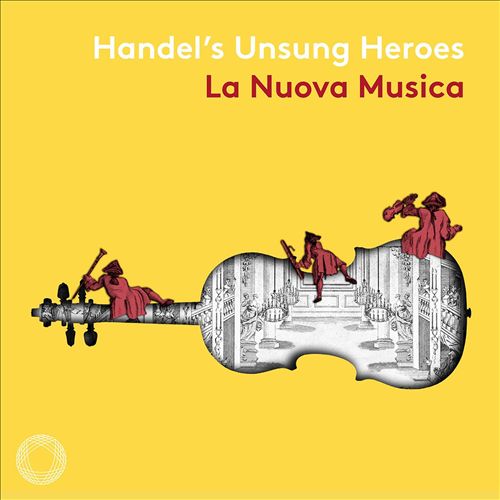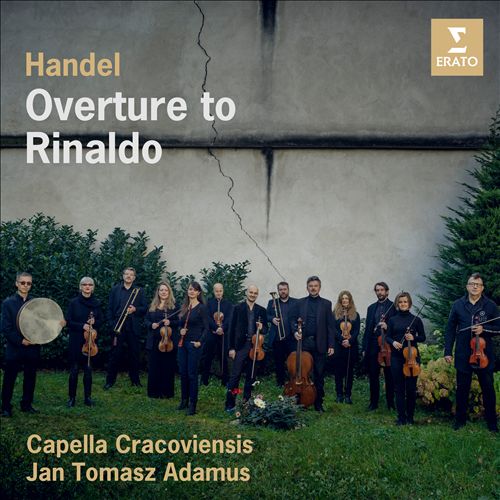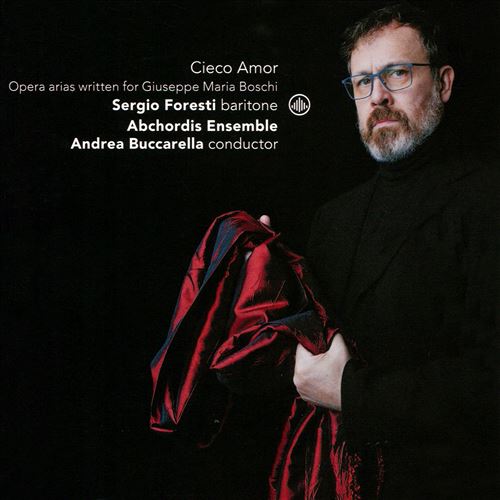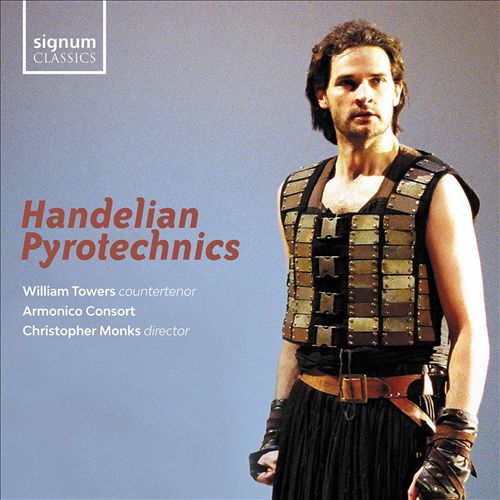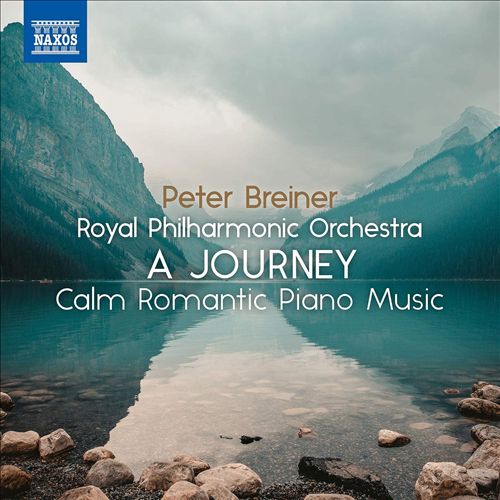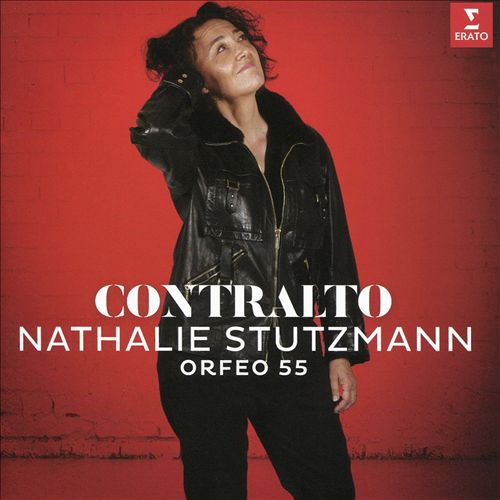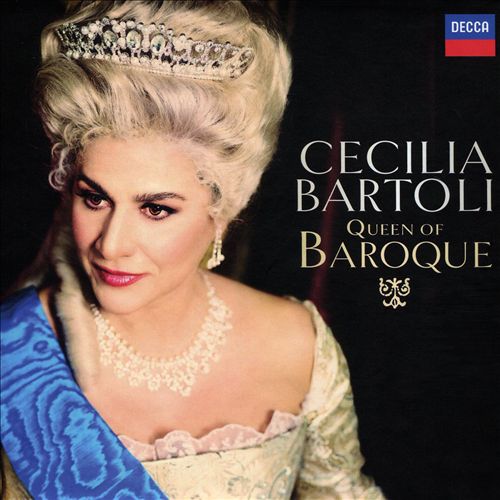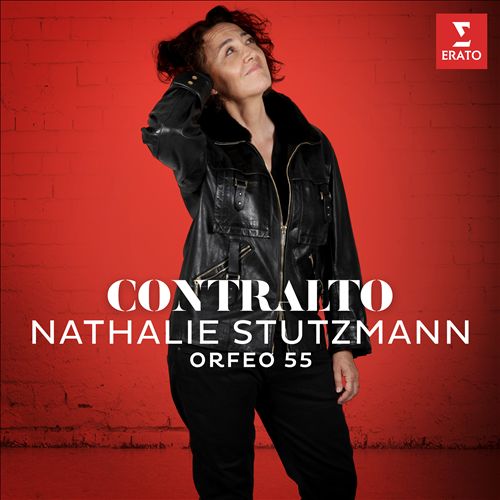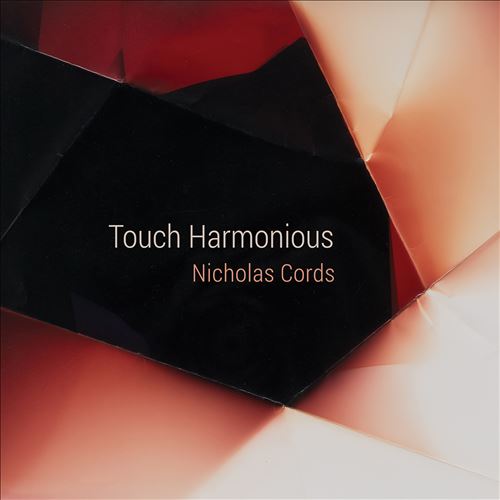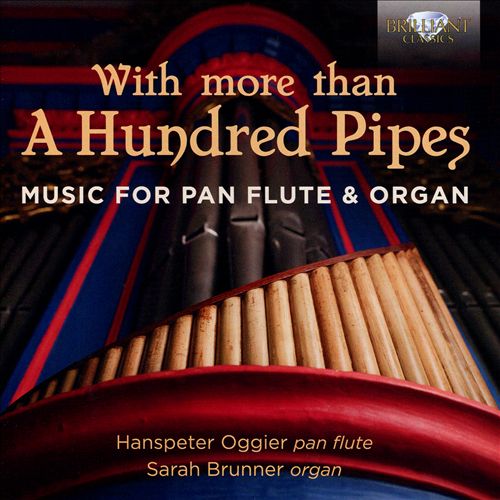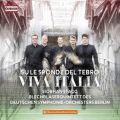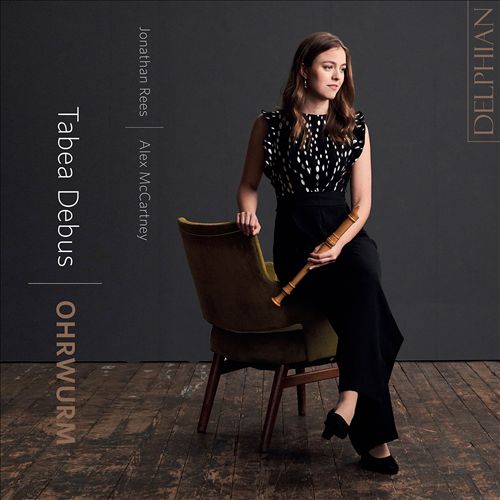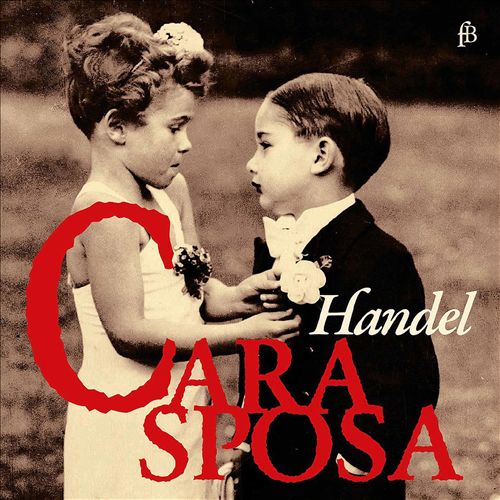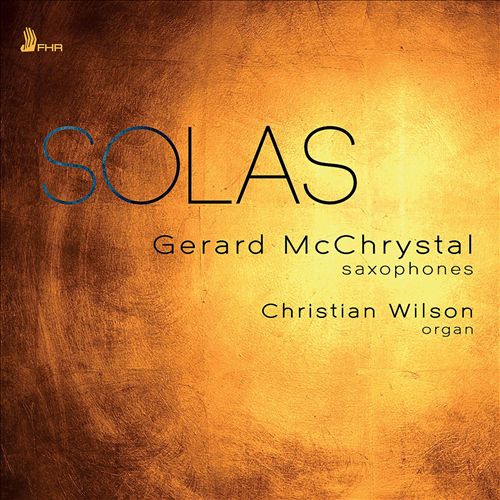George Frederick Handel (조지 프리더릭 헨델)
Rinaldo
100
10,000
1,400
WORK INFO
작곡가: George Frederick Handel (조지 프리더릭 헨델)작곡년도: 1711평균연주: 154:20악장1Overture. Largo - Allegro - Largo, Gigue4:242Act 1. Scene 1 : Delle nostre fatiche siam prossimi alla meta2:453Act 1. Scene 1 : Sovra balze scoscesi e pungenti4:284Act 1. Scene 1 : Signor, già dal tuo senno1:275Act 1. Scene 1 : Combatti da forte3:306Act 1. Scene 1 : Questi saggi consigli accogli nel tuo sen3:237Act 1. Scene 3 : Ogni indugio d'un amante è una pena4:158Act 1. Scene 2 : Signor, che delle stelle emuli i pregi2:289Act 1. Scene 2 : Sulla ruota di fortuna va girando la speranzanull10Act 1. Scene 3 : Sibillar gli angui d'Aletto4:4911Act 1. Scene 3 : Goffredo, se t'arrise sin qui fortuna1:3712Act 1. Scene 3 : No, no, che quest'alma scontenti non dànull13Act 1. Scene 4 : Infra dubbi di Marte resta sospeso il cuore4:2814Act 1. Scene 4 : Vieni, o cara, a consolarminull15Act 1. Scene 5 : Furie terribili2:3716Act 1. Scene 5 : Come a tempo giungesti, cara (Accompagnato)1:3517Act 1. Scene 5 : Molto voglio, molto spero2:4718Act 1. Scene 6 : Augelletti, che cantate5:4919Act 1. Scene 6 : Adorato mio sposo, vieni a bear quest'alma4:0320Act 1. Scene 6 : Scherzano sul tuo volto le grazie vezzosette4:3721Act 1. Scene 7 : Al valor del mio brando cedi la nobil preda1:2322Act 1. Scene 7 : Prelude0:2623Act 1. Scene 7 : Cara sposa, amante cara, dove sei?8:4524Act 1. Scene 8 : Ch'insolito stupore lega i sensi tuoi4:0325Act 1. Scene 8 : Cor ingrato, ti rimembri, e non scoppi di dolor?4:3626Act 1. Scene 8 : Io all'ora impugno il brandonull27Act 1. Scene 8 : Col valor, colla virtù or si vada a trionfar3:4128Act 1. Scene 9 : Di speranza un bel raggio ritorni4:1929Act 1. Scene 9 : Venti, turbini, prestate le vostre ali a questo piè!4:0430Act 2. Scene 1 : Siam prossimi al porto3:3231Act 2. Scene 2 : A quel sasso bramato1:0632Act 2. Scene 3 : Per raccor d'Almirena i più dolci respiri0:3233Act 2. Scene 3 : Il vostro maggio de' bei verdi anni1:4434Act 2. Scene 3 : Qual incognita forza mi spinge1:4335Act 2. Scene 3 : Il Tricerbero umiliato1:5336Act 2. Scene 3 : Signor, strano ardimento!3:5337Act 2. Scene 3 : Mio cor, che mi sai dir?null38Act 2. Scene 4 : Armida dispietata!1:5739Act 2. Scene 4 : Lascia ch'io pianga mia cruda sorte4:1240Act 2. Scene 4 : Ah! sul bel labbro Amore di possente magia formò le note3:0441Act 2. Scene 4 : Basta che sol tu chieda2:2542Act 2. Scene 5 : Cingetemi d'aldoro le trionfali chiome2:4343Act 2. Scene 6 : Perfida, un cor illuste ha ben forzanull44Act 2. Scene 6 : Fermati - No, crudel2:1845Act 2. Scene 7 : Crudel, tu ch'involasti al mio core la calma3:4946Act 2. Scene 7 : Abbrugio, avvampo e fremonull47Act 2. Scene 8 : Dunque i lacci d'un volto (Accompagnato)5:3848Act 2. Scene 8 : Ah! Crudel, il pianto mio, deh! Ti mova6:1949Act 2. Scene 9 : Riprendiam d'Almirena il menttito sembiante2:1150Act 2. Scene 10 : Adorata Almirena, ogni brevenull51Act 2. Scene 10 : Vo' far guerra, e vincer voglio6:2052Act 3. Scene 1 : Quivi par che rubelle la terra s'alzi2:1353Act 3. Scene 2 : La causa che vi spinge in sì remota panull54Act 3. Scene 2 : Sinfonia1:5456Act 3. Scene 2 : Qui vomita Cocito tutta sua nera peste3:4957Act 3. Scene 2 : Andate, o forti, fra stragi e morti2:2458Act 3. Scene 3 : Mori svenata! - O Numi!4:0159Act 3. Scene 4 : Nella guardata soglia come osaste portar sicuronull60Act 3. Scene 4 : Sorge nel petto certo diletto4:2761Act 3. Scene 4 : Al trionfo s'affretti senza ritardo il corso!4:2662Act 3. Scene 4 : È un incendio fra due ventinull63Act 3. Scene 5 : Chiuso fra quelle mura langue il comun valore3:0664Act 3. Scene 6 : Per fomentar lo sdegno a frontnull65Act 3. Scene 6 : In quel bosco di strali3:3666Act 3. Scene 6 : Al trionfo del nostro furore or corriamo3:4667Act 3. Scene 7 : Di quei strani accidenti se la serie ripiglio2:5868Act 3. Scene 7 : Bel piacere è godere fido amor!1:4669Act 3. Scene 8 : Signor, l'oste nemica con barbari ululati s'avvicina2:5770Act 3. Scene 8 : Di Sion nell'alta sedenull71Act 3. Scene 9 : March1:5272Act 3. Scene 9 : Se ciò t'è in grado, o prence4:0673Act 3. Scene 9 : Or la tromba in suon festante mi richiama a trionfar3:5574Act 3. Scene 10 : Miei fidi, ecco là un campo colmo di mille furi2:1675Act 3. Scene 11 : Magnanimi campioni, ecconull76Act 3. Scene 11 : Battaglia1:3477Act 3. Scene 12 : Goffredo, ecco il superbo in lacci avvolto1:5878Act 3. Scene 13 : Ecco, german, la crudanull79Act 3. Scene 13 : Vinto è sol dalla virtù degli affetti il reo livor1:38Rinaldo (HWV 7) is an opera by George Frideric Handel composed in 1711. It is the first Italian language opera written specifically for the London stage. The libretto was prepared by Giacomo Rossi from a scenario provided by Aaron Hill. The work was first performed at the Queen's Theatre in London's Haymarket on 24 February 1711. The story of love, battle and redemption set at the time of the First Crusade is loosely based on Torquato Tasso's epic poem Gerusalemme liberata (Jerusalem Delivered), and its staging involved many original and vivid effects. It was a great success with the public, despite negative reactions from literary critics hostile to the trend towards Italian entertainment in English theatres. Handel composed the music for Rinaldo quickly. Much of it is borrowings and adaptations from operas and other works that Handel had composed during his long stay in Italy during 1706–10. In the years following the premiere, Handel frequently introduced new numbers, discarded others, and transposed parts to different voice ranges. Despite the lack of a standard edition, Rinaldo's spectacular vocal and orchestral passages make it one of Handel's greatest operas. Of its individual numbers, the soprano aria "Lascia ch'io pianga" has become a particular favourite and is a popular concert piece. Handel went on to dominate opera in England for several decades. Rinaldo was revived in London regularly up to 1717, and a revised version was presented in 1731. The opera was also performed in several European cities. During Handel's lifetime, Rinaldo was the most frequently performed of all the composer's musical dramas. After 1731, however, the opera was not staged for more than 200 years. Renewed interest in baroque opera during the 20th century led to the first modern professional production in Handel's birthplace, Halle, Germany, in 1954. The opera was mounted sporadically over the following thirty years. After a successful run at New York's Metropolitan Opera in 1984, performances and recordings of the work have become more frequent worldwide. The opera's tercentenary in 2011 brought a modernized production at the Glyndebourne Festival.
Handel began to compose operas in Hamburg, where he spent the years 1703–06; his principal influences were Johann Mattheson and Reinhard Keiser. At that time, German opera as a genre was still not clearly defined; in Hamburg the term Singspiel ("song-play") rather than opera described music dramas that combined elements of French and Italian opera, often with passages of spoken German dialogue. The music was, in the words of historian Donald Jay Grout, "tinged with the serious, heavy formality of Lutheran Germany". The first of Handel's early works in the German style was Almira, a considerable success when it was premiered on 8 January 1705. Over the next three years Handel composed three more operas in the German style, but all of these are now lost. However, fragments of the music from these works have been identified in later operas.From WIKIPEDIA
RELEASED ALBUMS
-
Relaxing Classical MusicJanuary 19, 2025
-
George Frideric Handel: Rinaldo, 1731January 17, 2025
-
Calming Classical MusicDecember 5, 2024
-
Romantic Piano MusicNovember 22, 2024
-
Great Composers in Words and Music: HandelJuly 26, 2024
-
Handel at Home, Vol. 2: Total Eclipse - Chamber Music by George Frideric HandelOctober 20, 2023
-
Il Castrato del granduca: Arias for Gaetano BerenstadtOctober 20, 2023
-
GoldenJuly 28, 2023
-
Welcome to My WorldJuly 14, 2023
-
We'll Meet Again: The Sound of Nostalgia on FilmMarch 31, 2023
-
Amore DoloreMarch 3, 2023
-
Georg Friedrich Händel: Neun Detusche ArienOctober 7, 2022
-
Une Nouvelle fête Baroque!April 22, 2022
-
Winged Hands: George Frideric Handel - The Eight Great Suites & OverturesMarch 11, 2022
-
Handel: EnchantressesJanuary 14, 2022
-
HandelNovember 5, 2021
-
Handel's Unsung HeroesOctober 15, 2021
-
Handel: Overture to RinaldoJuly 9, 2021
-
Cieco Amor: Opera Arias Written for Giuseppe Maria BoschiMay 7, 2021
-
Handelian PyrotechnicsApril 2, 2021
-
A Journey: Calm Romantic Piano Music, Vol. 2March 12, 2021
-
ContraltoFebruary 19, 2021
-
Queen of BaroqueJanuary 29, 2021
-
Contralto: Handel - Rinaldo, Act 2, Mio cor, che mi sai dir?January 8, 2021
-
Touch HarmoniousNovember 8, 2020
-
With more than a Hundred Pipes: Music for Pan Flute & OrganSeptember 18, 2020
-
Viva Italia: Su le Sponde del TebroSeptember 4, 2020
-
OhrwurmAugust 28, 2020
-
Handel: Cara SposaJuly 31, 2020
-
SolasJune 19, 2020
FEATURED MOVIES
-
 04:39헨델: 리날도 Lascia ch'io pianga mia cruda sorteUniversity of Mary Hardin-Baylor
04:39헨델: 리날도 Lascia ch'io pianga mia cruda sorteUniversity of Mary Hardin-Baylor -
 05:03헨델: 리날도 Lascia ch'io pianga mia cruda sorte
05:03헨델: 리날도 Lascia ch'io pianga mia cruda sorte -
 05:42헨델: 리날도 Lascia ch'io pianga
05:42헨델: 리날도 Lascia ch'io pianga -
 03:35헨델: 리날도 Lascia chio pianga mia cruda sorte2013. 5. 25부산문화회관 대극장
03:35헨델: 리날도 Lascia chio pianga mia cruda sorte2013. 5. 25부산문화회관 대극장 -
 04:45헨델: 리날도 Lascia chio pianga mia cruda sorte2012.7.18예술의 전당 콘서트홀
04:45헨델: 리날도 Lascia chio pianga mia cruda sorte2012.7.18예술의 전당 콘서트홀 -
 07:26헨델: 리날도 Dunque i lacci dun volto
07:26헨델: 리날도 Dunque i lacci dun volto -
 04:21헨델: 리날도 Lascia chio pianga
04:21헨델: 리날도 Lascia chio pianga -
 05:19헨델: 리날도 Lascia chio pianga
05:19헨델: 리날도 Lascia chio pianga -
 04:09헨델: 리날도 Lascia Chio Pianga2013. 5. 10Dresden, Germany
04:09헨델: 리날도 Lascia Chio Pianga2013. 5. 10Dresden, Germany -
 03:55헨델: 리날도 Lascia Chio PiangaPraha, Czech
03:55헨델: 리날도 Lascia Chio PiangaPraha, Czech -
 06:04헨델: 리날도 Lascia chio pianga2011년 02월 19일
06:04헨델: 리날도 Lascia chio pianga2011년 02월 19일 -
 06:16헨델: 리날도 Lascia chio piangaKBS클래식
06:16헨델: 리날도 Lascia chio piangaKBS클래식 -
 04:48헨델: 리날도 Lascia chio pianga
04:48헨델: 리날도 Lascia chio pianga -
 04:27헨델: 리날도 Lascia chio piangaMay 2013German TV
04:27헨델: 리날도 Lascia chio piangaMay 2013German TV
ALBUM MUSIC
WORKS SHOUTS


